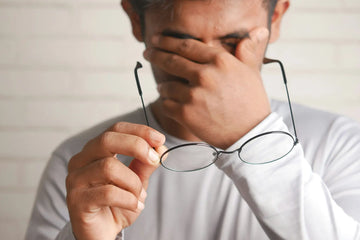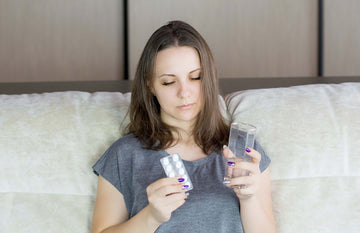What Causes a Hangover? And how long will a hangover last?
We have all been there, waking up blurry eyed from a fun night out and wondering, how do hangovers happen? As a general rule, the more alcohol you drink, the more likely you are to have a hangover the next day. But there's no magic formula to tell you how much you can safely drink and still avoid a hangover.
So what causes a hangover? And how long will it last?
Drinking too much is the obvious culprit behind a hangover but the main cause of a hangover is the effect of ethanol metabolized into toxic acetaldehyde.
Alcohol has a constellation of effects on your body and mind, many of which contribute to hangover symptoms. In this blog post, we break down the main reasons why people get a hangover:
Dehydration:
When you drink alcohol the release of vasopressin is suppressed, a hormone produced by the brain that sends signals to the kidneys causing them to retain fluid. This causes the body to increase urination and excess loss of fluids, as well as water soluble vitamins, resulting in dehydration. Dehydration is one of the main causes of headaches, dizziness, and, of course, thirst.
Disrupted sleep:
Whilst people typically feel sleepier or fall asleep quicker after drinking, it also prevents high-quality sleep, which according to the National Sleep Foundation is caused by the production of adenosine (a chemical in the brain that acts as a sleep-inducer) which increases while drinking, allowing you to go to sleep quickly — however, this chemical quickly subsides, making you more likely to wake up throughout the night.
Gastrointestinal irritation:
Drinking alcohol causes local irritation and inflammation, called gastritis. This contributes to nausea and stomach discomfort due to the increased acid production in your digestive system leading to irritation. Depending on how much you drink, alcohol can also speed up or slow down the passage of food matter through your gastrointestinal tract.
Electrolyte imbalance:
Your body’s electrolyte levels are impacted when you drink, which may contribute to headaches, irritability, and weakness.
Acetaldehyde exposure:
Drinking alcohol overwhelms your liver, causing a buildup of Acetaldehyde (ACH) a toxic, short-lived byproduct, which contributes to inflammation in the liver, pancreas, brain (e.g. headaches), gastrointestinal tract, and other organs.
Anxiety + Withdrawal:
Drinking alcohol can lead to people feeling more relaxed, calmer, euphoric or energetic. But the brain quickly adjusts to those positive effects as it tries to maintain balance. As a result, when the buzz wears off, people can feel more restless and anxious than before they drank.
Congeners:
Congeners are fermentation byproducts other than alcohol, such as methanol, and contribute to hangover severity. Generally the clearer the drink, like vodka, has fewer congeners than complex drinks like beer. More congeners generally correlate with more severe hangover symptoms.
How long do hangovers last?
According to Johns Hopkins Medicine: “Hangovers can last up to 72 hours after drinking, but most are shorter in duration. Again it depends on how much was consumed, how dehydrated you became, nutritional status, ethnicity, gender, the state of your liver, medications, etc”
Please note: Intended for educational and informative purposes only and not intended to serve as medical or professional advice. For medical attention or advice you should consult your physician or other health care professional.






